Effective Marketing for Therapists: Top Strategies to Grow Your Practice
If you're a therapist aiming to grow your practice, having a clear and thoughtful marketing strategy is essential. In this guide to marketing for therapists, we’ll walk you through practical, approachable ways to increase your visibility, connect with your ideal clients, and build a thriving, sustainable business. Whether you're just getting started or looking to refine your current efforts, these strategies will help you market with confidence and purpose. Let’s dive into the essentials.
Understanding Therapy Marketing
Marketing for therapists isn’t just a nice-to-have, it’s a key part of running a successful, modern practice. A thoughtful marketing strategy allows you to showcase your expertise, build trust, and connect more meaningfully with the people who need your support. Strong marketing not only boosts your visibility and credibility but also helps you stand out in a crowded field.
But marketing is about more than visibility, it’s about connection. It’s your way of reaching out, offering guidance, and letting potential clients know that help is available. When approached with clarity and care, marketing becomes a powerful tool for building relationships and guiding people toward the support they’re seeking.
While some therapists may worry that marketing takes focus away from their core mission of helping others, effective marketing actually enhances that mission. It raises awareness, fosters community support, and ensures that more people can find and access the mental health services they need.
In today’s digital age, especially as insurance coverage becomes more limited, online marketing strategies are essential for expanding your reach. A strong marketing approach doesn’t just fill your calendar; it ensures your services are visible and accessible to those who need them most.
The difference between marketing, branding, and advertising
Marketing encompasses a broad range of strategies aimed at promoting therapy practices and attracting clients. Branding and advertising fall under the marketing umbrella, each playing a significant role in a comprehensive marketing strategy. Branding establishes a unique identity for a therapy practice, helping it resonate emotionally with potential clients. This emotional connection is vital as it fosters trust and loyalty, making clients feel understood and valued.
Advertising, on the other hand, is a specific component of marketing focused on promoting services through paid channels. Whether it’s through social media marketing, digital marketing, or other marketing materials, advertising helps to reinforce recognition and credibility.
Understanding the distinct roles of marketing, branding, and advertising allows therapists to develop a cohesive and effective marketing approach that leverages each element’s strengths.
Identifying Your Ideal Client
Identifying your ideal client is crucial for therapists as it enables them to tailor their marketing strategies effectively. Here are some factors to consider:
Age
Gender
The issues they face
The types of therapy they respond to best
Narrowing down the target audience allows therapists to create more focused marketing efforts, leading to substantial growth.
Specialising in a niche enhances marketing efforts by making services more appealing to a specific audience. For instance, if you have a passion for working with adolescents struggling with anxiety, your marketing materials should clearly reflect this. This specificity not only attracts the right clients but also positions you as an expert in that particular area, increasing your credibility and trustworthiness.
Developing a Strong Online Presence
A strong online presence is crucial for therapists in today’s digital age. It helps potential clients find you and showcases your expertise, making it easier for them to decide whether you are the right fit for their needs. A professional website and engaging social media presence are key components of an effective online marketing strategy.
They not only enhance visibility but also foster trust and simplify the process for potential clients to find and select your services.
Building your therapy website
A professional website serves as your digital storefront, providing potential clients with a first impression of your therapy practice, showcasing you as an experienced and qualified therapist.
It should be well-structured and user-friendly, showcasing essential information such as:
Your bio
Services offered
Contact details
Testimonials
Using platforms like WordPress as a website platform allows for customizable themes, booking systems, and SEO tools, making it easier to optimise your website.
A memorable domain name, quality images, and a welcoming design are crucial for enhancing user engagement and comfort.
Optimising your website for search engines is crucial for improving visibility. This involves making the site mobile-responsive, using relevant keywords, and incorporating internal links for better navigation. A simple yet effective website can be launched over a weekend, allowing therapists to establish their online presence quickly.
Wix and Squarespace are also popular platforms for launching professional websites.
If you're looking for a professional website, Visuable offers professional web design services tailored to therapists, ensuring your online presence is both effective and engaging.
Enhancing your social media presence
Social media is a powerful marketing tool for therapists. It enables them to share content, engage with potential clients, and build their online presence. Creating engaging content like tips, informative posts, and videos can significantly raise awareness of a therapist’s services and encourage potential clients to reach out. Utilizing hashtags and Instagram ads can further increase visibility and engagement.
Building relationships through social media can enhance trust and client loyalty, making it an essential tool for connecting with the community. Engaging with followers through comments, direct messages, and interactive content like polls and Q&A sessions can foster a sense of community and support, improving communication skills.
A strong social media presence attracts new clients and helps maintain relationships with existing ones.
Utilising Search Engine Optimization (SEO)
Search Engine Optimisation (SEO) is crucial for increasing your therapy practice’s visibility in search engine results, attracting more clients. The main goal of SEO is to enhance online visibility through higher search rankings. Keyword research helps understand what potential clients are searching for, guiding content creation to match these searches and target specific keywords. Focusing on long-tail keywords attracts a more targeted audience, resulting in higher conversion rates.
Need professional help with SEO?
Visuable provides specialised SEO services for therapists with Shopify and Squarespace websites. Our tailored approach ensures your website ranks higher, attracts more ideal clients, and strengthens your online presence through strategic optimisation.
Improving your website’s ranking in Google search results involves various strategies, such as optimising images with relevant keywords, ensuring mobile-friendliness, and consistently applying SEO practices. Link building from authoritative sites and using internal links within your website can further improve online authority and visibility. A Google Business Profile is essential for local SEO, helping therapists appear in local search results.
Regularly updating your website with fresh content that answers common questions can enhance the effectiveness of your SEO. Listing your practice in online directories can also improve your SEO, resulting in more organic traffic to your website. Consistently refining SEO strategies ensures that a therapy practice remains visible and accessible to those in need.
Leveraging Online Directories
Listing your practice in online therapist directories is an effective strategy to increase visibility during potential client searches. Directories like Psychology Today are popular among therapists and clients alike, providing a platform where potential clients can quickly find you. These directories make it easy for people to find mental health services by providing information about therapists’ specialities and qualifications.
Creating a strong profile in an online directory can lead to increased inquiries and engagement from clients. Encouraging positive online reviews can further enhance your credibility and improve search visibility.
Registering with specialised directories that target specific populations or needs can also enhance your visibility and attract more suitable clients.
Networking and Building Referral Networks
Networking helps therapists connect with potential clients through existing networks and referrals. Establishing relationships with community organisations, legal professionals, and other mental health professionals can create avenues for valuable referrals. Including a detailed description of your ideal client and therapy clients in networking packages can aid others in making appropriate referrals.
Excellent service encourages client referrals, and promotional incentives can further boost them. Attending local events and joining professional organisations can also provide networking opportunities and help build a strong referral network. Also, you can refer clients and leverage referral sources to enhance your business growth.
Actively engaging in networking expands a therapist’s reach and attracts more clients, just like it does for other therapists.
Content Marketing Strategies
Content marketing is essential in therapy practice as it attracts and engages the target audience while showcasing expertise. Valuable content like blogs, videos, podcasts, and online courses helps therapists connect with potential clients and establish authority in mental health topics. Interactive content like quizzes, surveys, and infographics can also promote mental health awareness and engagement.
The primary principle of content production should be creating value for the audience. This should always be the focus. Consistently providing high-quality content builds credibility and trust with an audience, leading to increased client engagement and retention. Content marketing not only enhances online visibility but also reinforces the therapist’s commitment to mental wellness and support.
Blogging for therapists
Blogging can help therapists connect with potential clients, share services, and build relationships. A blog post can serve as a foundation for other content types like courses or e-books, expanding a therapist’s reach and authority. Writing about mental health topics and providing valuable insights showcases a therapist’s knowledge and expertise, attracting more clients.
A therapist’s blog can become so much more than just a place for updates, it can grow into a trusted resource that supports your community and amplifies your voice. Over time, your blog content can evolve into larger offerings like a course, book, or even a podcast, expanding the reach of your expertise.
Regularly sharing fresh, relevant content not only keeps your audience engaged but also boosts your visibility on search engines. By consistently offering value, whether through practical tips, thought-provoking articles, or personal insights, you build trust and credibility. This ongoing connection helps deepen client relationships and encourages long-term engagement and loyalty.
Video Marketing
Video marketing is a powerful way for therapists to create genuine, personal connections with potential clients. Through visual storytelling, you can bring your approach to life, helping people feel seen, understood, and more confident about reaching out for support.
Engaging video content not only captures attention but also boosts your online visibility, especially when shared across social media platforms. From explaining your therapeutic approach to offering helpful tips, videos give you the opportunity to showcase your expertise and build trust in a more relatable, human way.
Interactive formats like Q&A sessions or live streams take it a step further, allowing you to connect in real time and answer the questions that matter most to your audience. Done well, video marketing doesn’t just enhance your presence online, it deepens engagement and helps more people feel ready to take the next step toward therapy.
Email Marketing
Email marketing is an effective and reliable way for therapists to stay connected, build relationships, and gently grow their practice. By creating a mailing list and sharing regular newsletters or blog updates, you can keep your audience engaged and informed.
Focus on offering meaningful content, like wellness tips, appointment reminders, or updates about your services, to ensure your emails feel helpful rather than promotional. When your messages add value and reflect your supportive tone, clients are more likely to stay subscribed and feel confident returning to your practice when they need support.
A regular email schedule keeps therapists top-of-mind with their audience without overwhelming them. Popular platforms for sending email newsletters include MailChimp and Squarespace Campaigns. With a high return on investment, email marketing is an effective strategy for building relationships and generating leads.
Paid Advertising
Running paid ads is a vital strategy for therapists to expand their online presence. Google Ads, Facebook, Instagram, and LinkedIn Ads are effective platforms for paid advertising. Using the Meta Ad platform allows therapists to create ads that appear on both Facebook and Instagram simultaneously. Crafting engaging ad copy and conducting A/B testing helps therapists identify which ads resonate most with their audience.
Monitoring ad performance metrics is essential for understanding campaign effectiveness and making necessary adjustments. Targeting low-competition search terms can lower advertising costs significantly, making paid advertising more accessible.
Maintaining compliance with advertising regulations and monitoring ad performance ensures that paid advertising efforts are effective and aligned with the marketing strategy.
Offering Free Consultations
Free consultations significantly enhance the chances of converting potential clients into paying customers. These consultations demonstrate a therapist’s commitment to finding suitable therapy options and help establish trust with potential clients. Limiting the duration and scope of a free consultation prevents therapists from overextending their services.
These consultations also serve as a platform for therapists to explain their therapeutic approach and services. Offering free consultations gives potential clients a preview of therapy, helping them make informed decisions about their mental health care.
Hosting Workshops and Webinars
Hosting online workshops or webinars allows therapists to share their expertise. These events help therapists build their professional reputation by showcasing their knowledge. Reaching out to schools, community centres, and other organisations to host therapy-related events can provide valuable networking opportunities and increase visibility within the local community. Recording workshops and webinars for later viewing increases their reach.
Interactive features in webinars, like Q&A sessions, promote engagement and dialogue with attendees. It is important for event pages to include the agenda, speakers, and registration details to attract attendees.
Hosting these events allows most therapists to market their services, reach potential clients, and build relationships with other professionals. By choosing to host events, they can further enhance their visibility.
Gathering and Showcasing Testimonials
Client testimonials build trust and showcase success stories, playing a crucial role in marketing. Regularly collecting testimonials keeps the showcase fresh and relevant, enhancing a therapist’s credibility. Displaying testimonials prominently on websites can significantly enhance a therapist’s credibility and attract potential clients. Video testimonials can be particularly engaging and help potential clients connect more personally.
Including a mix of positive reviews and testimonials provides a balanced view of a therapist’s practice. Encouraging satisfied clients to leave reviews and share their experiences can further enhance the therapist’s online presence and attract new clients. Showcasing testimonials helps therapists build trust and demonstrate the effectiveness of their services.
Tracking and Adjusting Marketing Efforts
Analytics tools like Google Analytics are essential for tracking website performance and optimising SEO efforts based on data. These tools enable therapists to monitor website traffic and user behaviour effectively. Regularly reviewing analytics allows therapists to adapt their strategies based on what is resonating with clients. Identifying specific metrics to track, such as conversion rates and social media engagement, drives effective marketing decisions.
Setting SMART goals helps in measuring marketing success by ensuring targets are clear and achievable. Analysing marketing performance over time helps identify trends and inform adjustments. Consistently tracking and adjusting marketing efforts ensures that strategies remain effective and aligned with goals.
Frequently Asked Questions
Why is marketing important for therapists?
Marketing is vital for therapists because it boosts visibility, establishes credibility, and fosters connections with potential clients, which can lead to a successful practice. Embrace marketing to thrive in your therapy career!
How can I identify my ideal client?
To identify your ideal client, take a moment to reflect on the characteristics of clients you connect with and thrive alongside—think about their age, gender, challenges, and what therapeutic approaches resonate with them. This clarity will empower you to attract the clients who genuinely energise your work!
What are the benefits of having a professional website?
Having a professional website boosts your credibility and helps you stand out, acting as a powerful marketing tool to attract more clients. Embrace this opportunity to elevate your online presence and grow your business!
How can social media marketing help my practice?
Social media marketing can significantly enhance your practice's visibility and credibility by allowing you to share engaging content, connect with potential clients, and build lasting relationships. Embrace this tool to foster trust and grow your client base!
What role does SEO play in therapy marketing?
SEO is crucial in therapy marketing as it boosts your online visibility, helping you rank higher in search results and attract more clients effectively. Embrace it to grow your practice and reach those who need your services.
Ready to Grow Your Therapy Practice?
Start applying these proven marketing strategies today to attract your ideal clients, build a thriving private practice, and make a meaningful impact.
Whether you're just getting started or refining your existing efforts, you don't have to do it alone. Book a free consultation for personalised support, or explore our tailored services for therapists to elevate your online presence with confidence.
































